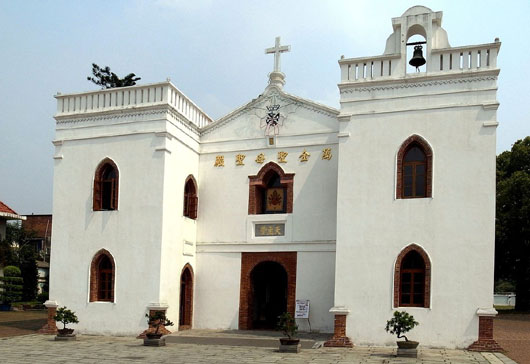by WorldTribune Staff, September 16, 2018
A deal between the Vatican and China, which would grant China the right to nominate future bishops, would likely end the diplomatic relationship between the Holy See and Taiwan that began in 1942.

Reports of the pending agreement come amid other reports of the suppression of religious expression throughout China.
A Human Rights Watch report estimates that over a million Muslim Uighurs are currently detained in re-education camps in the western province of Xinjiang. AP reported last week that reported that China’s government is seeking to drive citizens away from organized religion and toward the atheist Communist Party through scare tactics such as Bible-burning, shuttering churches, destroying crosses and forcing individuals to renounce their faith on paper.
The Vatican currently recognizes Taiwan as the official representative of faithful Catholics in China.
That could change under the new arrangement as, under Beijing’s One China policy, the Vatican would likely be required to switch official recognition to China.
Such would end what is Taiwan’s last official alliance with a European nation.
The deal would “also require the Vatican to recognize seven excommunicated Chinese bishops currently operating in China without recognition from Rome,” according to a Sept. 14 report by Forbes.
Also under the proposed deal, the report said, “the pope would have veto power over bishops nominated by Chinese authorities. In all other countries, the pope possesses sole authority to appoint bishops.”
China is home to some 12 million Catholics, according to the U.S. State Department’s latest International Religious Freedom report. Some are congregants in officially recognized churches, while others worship in underground churches.
“Finalizing a deal now would send the message that the Vatican is willing to turn a blind eye to Chinese threats to religious freedom—including the persecution of Catholics,” Olivia Enos wrote for Forbes.
Before signing the deal, “the Vatican should think seriously about the message that act would send regarding its concern for religious freedom in China,” Enos wrote. “Any decision should be made with the primary goal of advancing religious freedom for all. Granting the Chinese government authority over the appointment of bishops is unlikely to achieve those ends.”
Subscribe to Geostrategy-Direct __________ Support Free Press Foundation
